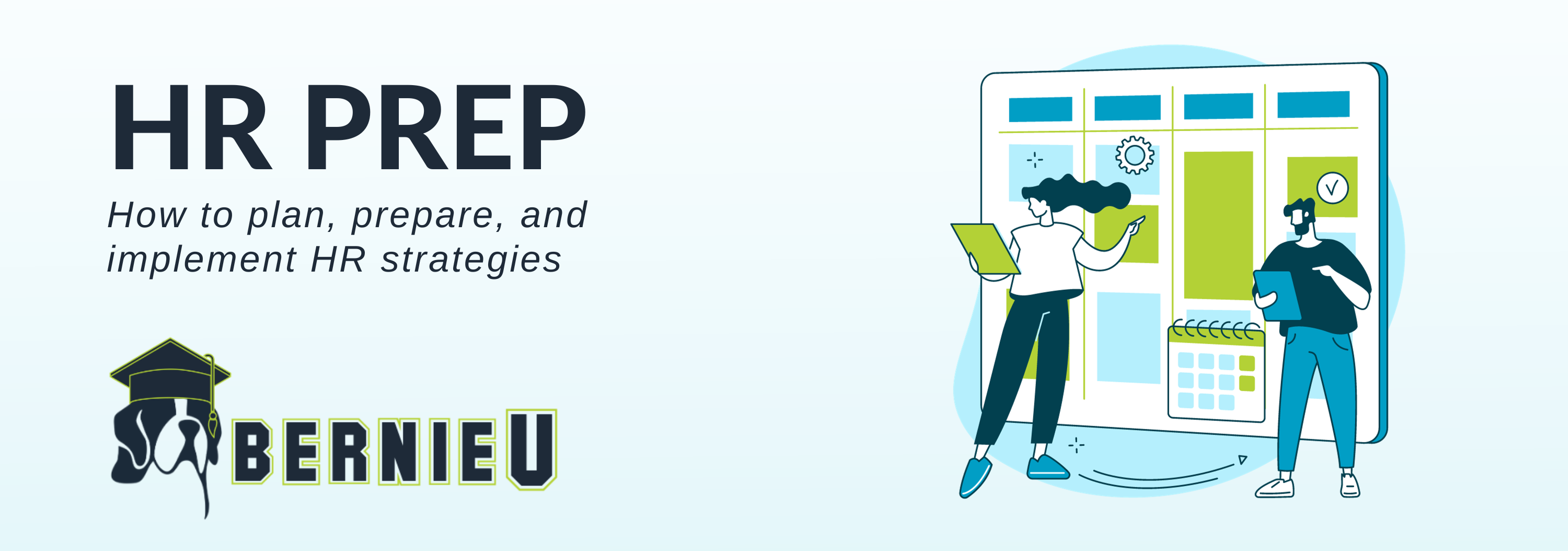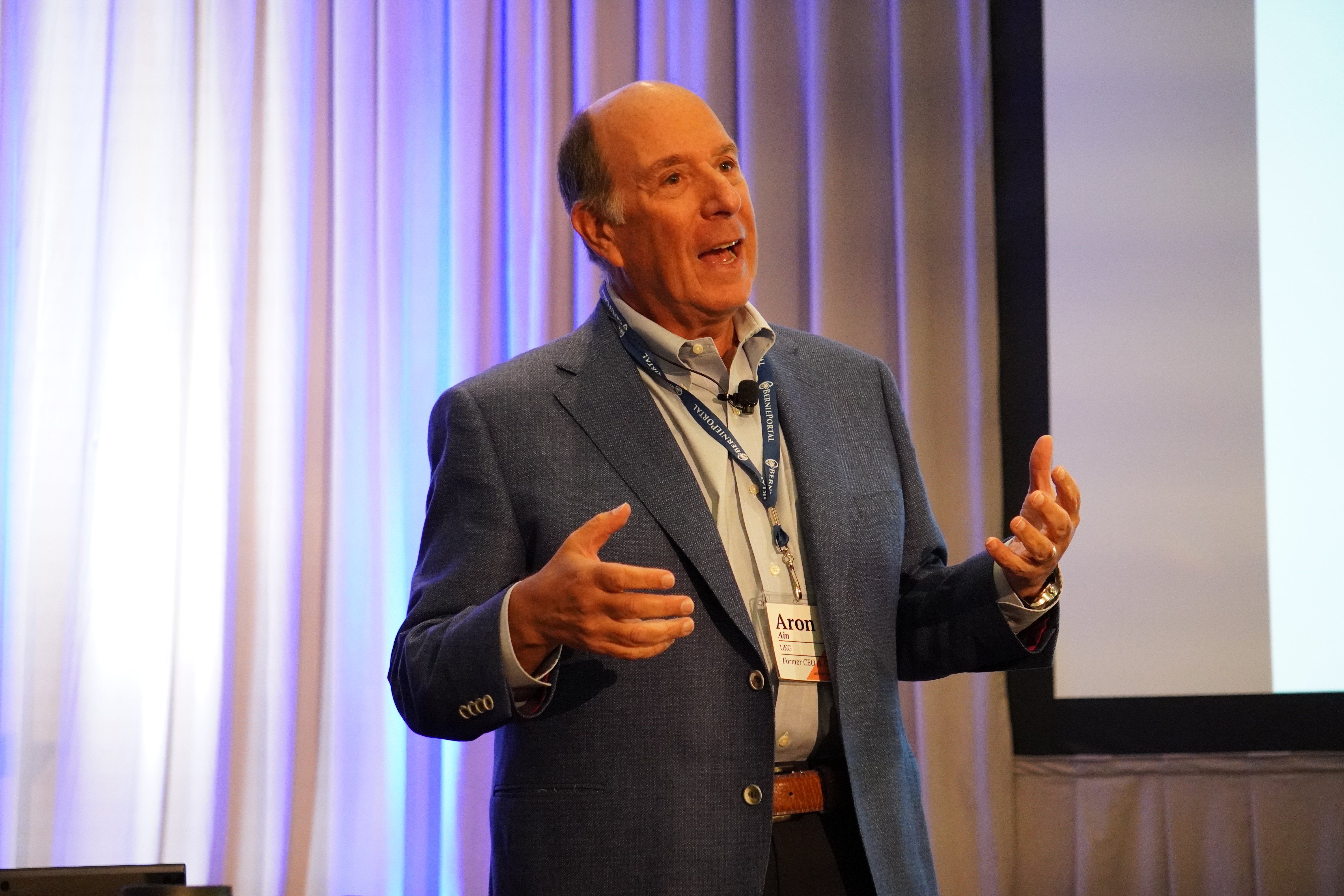Written by
Bretton Chatham
Bretton is an aPHR-certified member of the Marketing Team at Bernard Health. He writes about HR, compliance, and benefits solutions.
5 HR Trends to Watch in 2022

HR pros must be proactive, which includes staying up-to-date and being open to change. But it’s not just compliance dates and government regulations that are updated every year. The workforce changes, too!
So, here are five trends that HR teams should keep an eye on in 2022 and how your team can take advantage of them.
1. Increased Focus on Recruitment and Retention
Many employers are struggling with what has been called the “Great Resignation.” Record numbers of workers have quit their jobs over 2021, leaving many positions unfilled for months on end.
Naturally, this has led many employers to focus their efforts on recruitment and retention—even more so than in the past. In other words, it’s important to fill those positions as soon as possible, but it would be much more productive and cost-effective to keep those employees in the first place.
Organizations are not only leveraging compensation in this competition for talent, but also rehauling their benefits offerings to better meet the needs of new hires and old hands alike.
HR should be on the lookout for creative ways to address these issues, such as offering paid parental leave and student loan repayment or flexible work hours and remote opportunities. It’s likely competitors are already considering them.
BerniePortal’s Benefits Administration feature can help you offer a more robust benefits package without all the paperwork.
2. Prioritizing Mental Health and Work-Life Balance
Before COVID, Americans were among the most stressed people in the world. Of course, the pandemic has only exacerbated occupational stress. According to Harvard Business Review, 76% of workers reported at least one symptom of a mental health condition in 2021—up from 59% in 2019.
In response to this growing problem, 76% of employers surveyed said addressing employee mental and emotional health will be a “top priority over the next 3-5 years,” according to Mercer’s 2021 National Survey of Employer-Sponsored Health Plans.
HR should consider this trend when developing company culture and when shaping benefits packages for the foreseeable future. This could include a more flexible PTO policy, offering an EAP, or even pet-friendly benefits.
BerniePortal’s Performance feature allows you to conduct surveys and document 1:1 meetings to take the pulse of your organization and to check in on how individual workers are managing occupational and personal stress.
3. Growing Costs of Health Benefits
Speaking of benefits, in the Mercer survey mentioned earlier, employers anticipated sponsored health plan costs to rise 4.7% on average in 2022 compared to 2021.
In spite of these rising costs, the same survey found that, overall, employers do not plan to increase their workers’ share of coverage cost. In fact, many employers have added coverage such as telehealth services during the pandemic and intend to continue offering them.
In a recent roundup of HR experts on best employee benefits, several panelists mentioned the emerging trend of full employer-paid healthcare. Having a full employer-paid plan can offer peace of mind to your employees, and minimizing out-of-pocket healthcare costs can be a major selling point for top talent.
4. Emphasis on Personalized Performance Management
With shifts towards more decentralized workforces, managers and supervisors should look for ways to improve their communication with direct reports.
Employee performance conversations have a huge influence on how satisfied, motivated, and productive employees are.
Weekly 1:1 meetings can address that need. By implementing weekly 1:1 meetings, managers can offer constructive coaching and rely on regular documentation to cover compliance concerns in the event an employee is laid off or terminated.
Again, BerniePortal can help you document 1:1 meetings for performance management. For a deeper dive into how you can improve, check out this BernieU course: How Employers Can Master Managing Employee Performance.
5. Intentional Culture Building
Company culture is crucial to recruitment and retention.
In the past, anything resembling company culture was usually just a byproduct of work tasks, habits, and environment; now, however, influence runs the other direction, with culture informing daily work.
The job market remains incredibly competitive for employers. One way to maintain an edge in recruitment is by cultivating a stable and healthy company culture, whether its increasing workplace transparency, recognizing and rewarding employees, or simply promoting an environment of mutual respect.
HR should be proactive in building a meaningful culture that enhances the company and the employees’ experience. Consider conducting a pulse survey to gauge employee satisfaction, but be sure leadership commits to taking the survey and its results seriously first.
BerniePortal’s Survey feature can make it easy to administer surveys and collect feedback. You may also be interested in BernieU’s course: How to Establish a Meaningful Workplace Culture.
Additional Resources
You can stay informed, educated, and up-to-date with HR trends and other important topics by using BerniePortal’s comprehensive resources:
- BerniePortal Blog—a one-stop-shop for HR industry news
- HR Glossary—featuring the most common HR terms, acronyms, and compliance
- HR Guides—essential pillars, covering an extensive list of comprehensive HR topics
- BernieU—free online HR courses, approved for SHRM and HRCI recertification credit
- HR Party of One—our popular YouTube series and podcast, covering emerging HR trends and enduring HR topics
Written by
Bretton Chatham
Bretton is an aPHR-certified member of the Marketing Team at Bernard Health. He writes about HR, compliance, and benefits solutions.
Related Posts
We just wrapped up another phenomenal Weekdays with Bernie (WWB) Conference!
Employees are the heart and soul of an organization, and valuing their opinions can have...
HR parties of one already have an abundance of tasks to keep up with. From hiring to...
The talent search is no longer a skirmish or a battle. It’s a WAR! As a strategic HR...







Submit a Comment